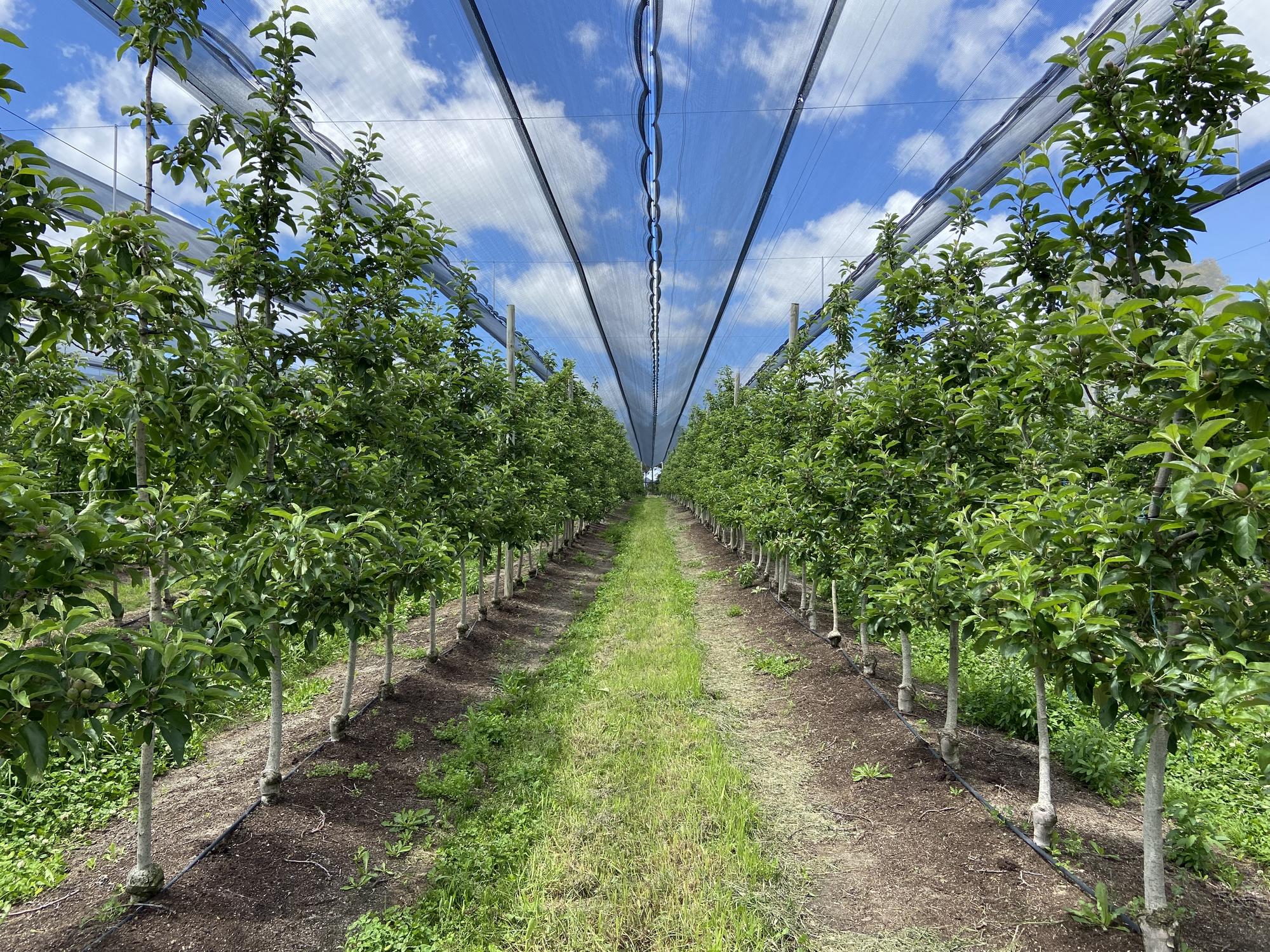She’ll be apples: Nutrien Horticulture team sees the fruits of their labour
Michael Bednarz, Branch Manager – Ballandean covers Queensland’s Granite Belt region, including the home of the Big Apple – Stanthorpe.
“This region produces the entirety of Queensland’s apple crop, growing a full suite of varieties for the fresh market as well as for canning, juicing and cider. This season we’re expected around 40,000 tonnes of apples, despite challenging seasonal conditions.”
“We’ve gone from severe drought – which has impacted fruit size and volume – to one of the wettest years on record,” says Michael.
“We’re seeing growers adopt new technologies and we’re advising them in the adoption of technology such as NDVI and digital insect traps, as well as decision making tools for PGR application timing and moisture EC sensing to improve irrigation and fertiliser efficiency.”
In the Goulburn Valley, Glenn Masterton, Account Manager Agronomy – Shepparton advises growers across a range of horticultural crops.
“This region produces 28% of the national apple crop, (approximately 80,000 tonnes) and 86% of the national pear crop (over 100,000 tonnes),” says Glenn.
“As well as the traditional apple cultivars, we’re now seeing new varieties such as Dazzle and Sassy being planted. Our region also supplies apples and pears for the fresh domestic market as well as for export, cider, juice and to our local SPS Cannery”
“Labour is a big issue, as with all growing regions, but we’re managing – just. This season the Goulburn Valley has had experienced a relatively good season, however high humidity and rainfall has affected skin finish on some fruit.”
With Integrated Pest and Disease Management (IPDM) becoming widely adopted across the industry, Glenn says there’s a role for our Nutrien team in monitoring beneficial insect numbers, as well as secondary pests and disease.
“We work closely with our growers using crop monitoring tools like moisture monitoring for irrigation scheduling, and weather predictive tools to help target PGR applications for crop load management. We’re also seeing new equipment technologies such as the REDpulse leaf defoliator for removing partial leaf to enhance fruit colour prior to harvest.”

Ian Cover, Agronomist – Huonville advises apple growers across Southern Tasmania.
“Tasmania produces over 32,000 tonnes of pomefruit (apples and pears) each season, which is about 9% of the national crop. This has been increasing over the last few years with new plantings.”
Ian says that the season starts with weekly maturity testing on Gala apples to provide an important benchmark for all apple varieties in the region, in terms of tracking size, colour and sugars.
“We also conduct plant tissue analysis, annual/biannual soil testing and agrichemical residue testing to work with growers to help rectify any nutrient imbalances and make sure we comply with quality assurance. For export crops, we also offer an online pest monitoring program for our clients.”
“Tasmania is later in production than the mainland, and usually benefits from seasonal workers traveling interstate following the mainland harvest. However, growers have certainly felt the impact from the travel restrictions and more growers are using the Pacific Labour Programs to get the harvest in,” he says.
“Smaller apple farms across Tasmania are looking at future-proofing their orchards by careful cultivar selection, and reworking older parts of their orchards into more modern growing systems. This is all with the aim to increase mechanisation and improve efficiency. More and more growers are focussing on IPDM and looking at ways to reduce unnecessary inputs and we are seeing more novel methods, such as ladybugs for aphid management.”
As for the best apple variety – Michael says it’s Envy, Glenn prefers Royal Gala and for Ian, it’s the Kanzi.
Nutrien is building a collective knowledge base through the development of specific horticulture commodity groups. These Horticulture Hubs will provide a platform for horticultural agronomists and employees to communicate and develop solutions to topical issues in the industry, working alongside key suppliers and industry groups.
For more information, contact Peter Melville, National Horticulture Category Manager.
